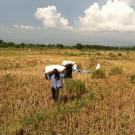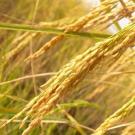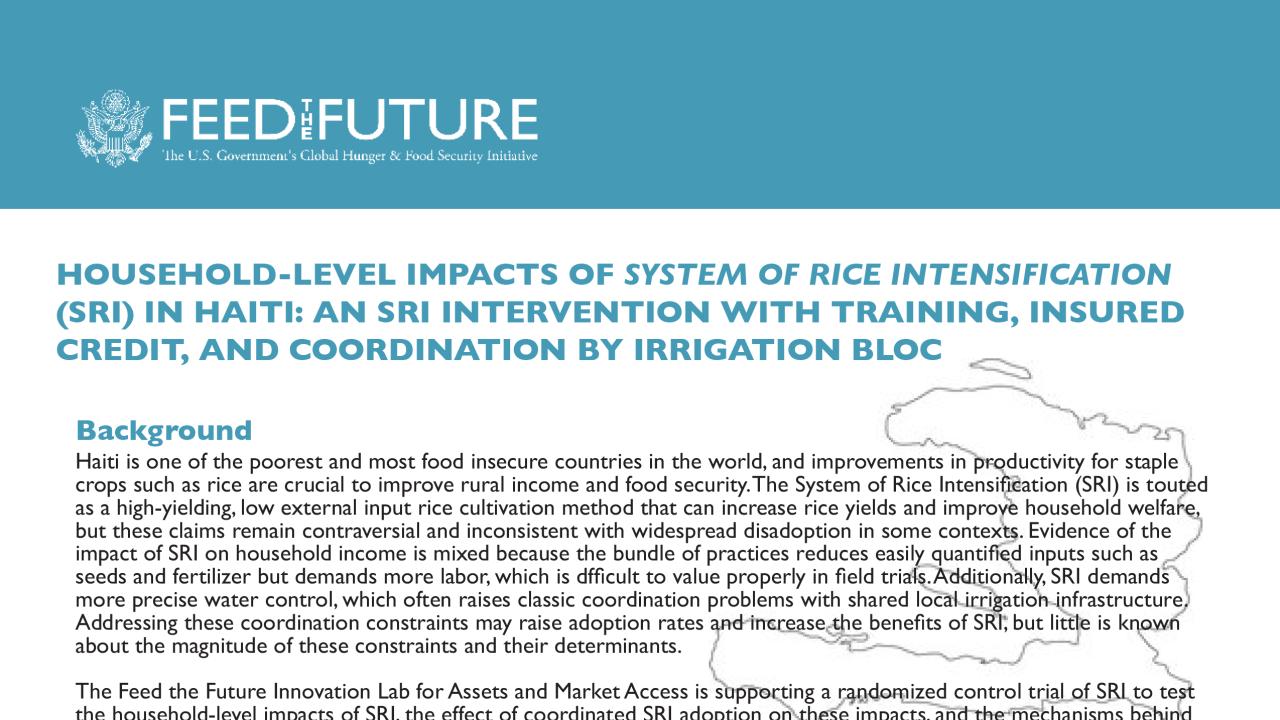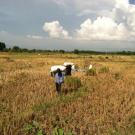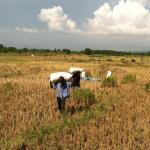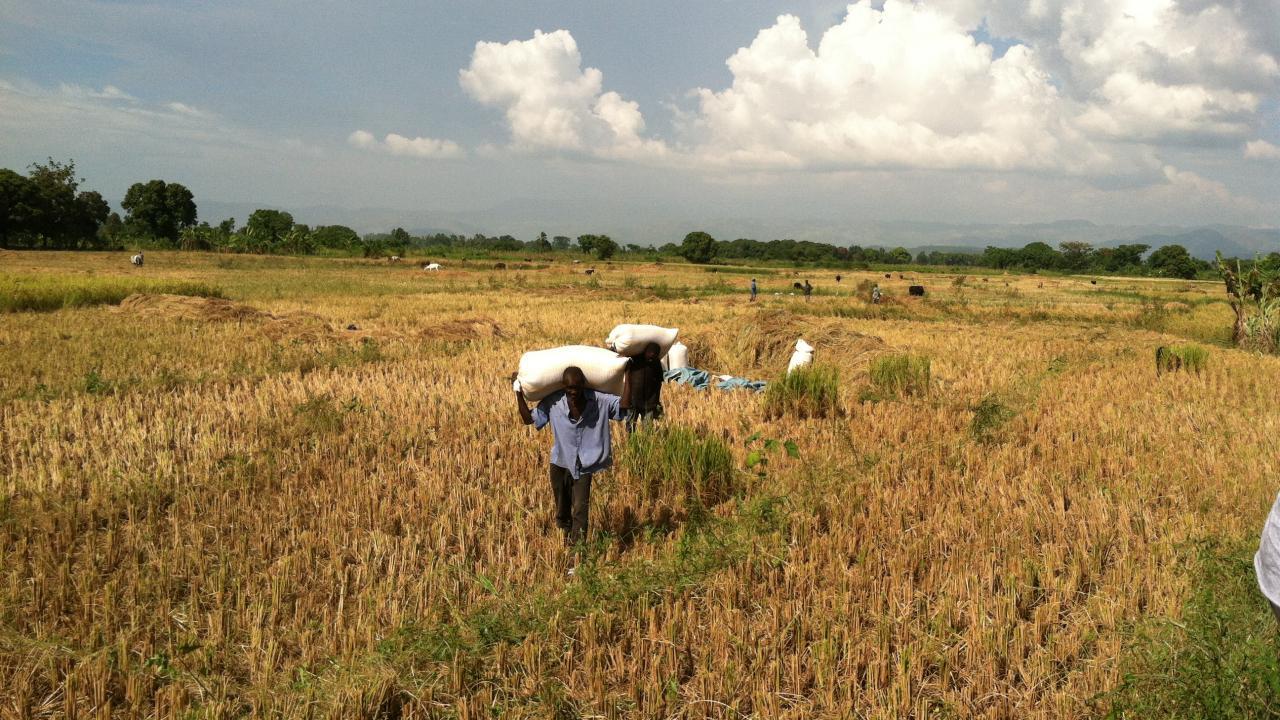
Haiti is one of the poorest and most food insecure countries in the world, and improvements in productivity for staple crops such as rice are crucial to improve rural income and food security. The System of Rice Intensification (SRI) is touted as a high-yielding, low external input rice cultivation method that can increase rice yields and improve household welfare, but these claims remain controversial and inconsistent with widespread disadoption in some contexts. Evidence of the impact of SRI on household income is mixed because the bundle of practices reduces easily quantified inputs such as seeds and fertilizer but demands more labor, which is difficult to value properly in field trials.



